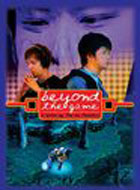
Beyond the Game 2011
Distributed by Cinema Purgatorio, PO Box 3620953, New York, NY 10129; 646-789-4119
Produced by Wink De Putter
Directed by Jos De Putter
DVD, color, 79 min.
High School - General Adult
Computer Games, Sociology, Information Technology, Business
Date Entered: 07/11/2011
Reviewed by Andrew Jenks, California State University, Long BeachWelcome to the weird and wired global subculture of video game addicts. This documentary tells the story of video game professionals – teens and twenty somethings who spend much of their life transfixed by a computer monitor and a game called WarCraft III. More than 10 million people worldwide play the game in which players – who adopt virtual monikers like Sky and Grubby – enter a make believe mythical battlefield of knights, elves, the undead and various other creatures. The participants seem to be mostly male – and they have their own female groupies. Within the real world that is attached to their real world, they are rock stars – the Keith Richards and Mick Jaggers of their time and milieu. Video game prowess, like playing a solo on lead guitar, now defines heterosexual masculinity.
One of the main players featured in the documentary, Sky, is an ambitious lad from the Chinese provinces. He treats video games as his way out of impoverished circumstances. With a knack for video gaming, and a burning desire to escape the province, Sky finds a sponsor and heads to Beijing – and from there to world championships. At first his parents condemn his habit – until they realize that he is earning money doing it. One of his competitors is the legendary Grubby, who calls Rotterdam his home.
Players brush their teeth at their monitors and eat Ramen noodles while typing madly away on the keyboard. They appear throughout the documentary bleary-eyed, obsessed, and ill-at-ease. “He looked like a zombie,” remarked the parent of one player after his son returned from a competition in Korea. Mad Frog admitted that he was lost for most of his teenage years – and that returning to “normal life” was really difficult. The countless hours in front of the monitor made him anti-social and he had to re-learn how to communicate with people outside the community of WarCraft warriors.
It is a strange and disconcerting world in which these teenagers live. They are driven partly by their passion for the game – but also by the need for money to support the habit. Meanwhile, the players seem to peak in their late teens or early 20s, at least based on this documentary. How they will cope with the rest of their lives – deprived of the adrenaline rush that comes from the trance-like state of intense gaming - remains unclear. Will these teenage video stars experience nostalgia for their glory days when they are middle-aged? Will they still be playing these games? One thing is sure: there is money to be made in the video game business, though mostly for those who make the video games. Only the elite players seem to be able to make a living playing these games – and their spot at the top of the WarCraft III world order is tenuous – as this documentary clearly illustrates.
The documentary provides a fascinating window into a universe that middle-aged people like this reviewer never knew existed. It is tempting to dismiss the phenomenon recounted in this documentary as something destructive and pernicious. But in doing so it would be necessary to acknowledge that the phenomenon is linked to something much broader: globalization and capitalist consumerism. Video games generate revenues larger than the GDP of many countries. They need teenage addicts to fuel those revenues. Offering the promise, mostly illusory, of becoming a professional gamer provides the hook and bait. Advertisers of computer technology and video games paste their logos on everything – the clothes the competitors wear, the arenas where they play to adoring teenage acolytes, many of them admiring female groupies. It is curious that a game played virtually can function as a viable spectator sport in the material world, but the sponsors have somehow made this happen.
The idea of information technology as liberating and enabling is one of the most tired and meaningless clichés of the 21st century. The obsessions explored in this documentary do not make for better informed global citizens. They do not help those who play the games become better people in the real world. Mostly, they just generate obscene profits for the purveyors in the industry – much like drug dealers. And the players, like punch-drunk boxers in the material world, are ruined for life. But this is just one Luddite’s view. Perhaps future historians of virtual worlds and industries will draw different conclusions.